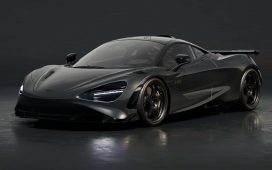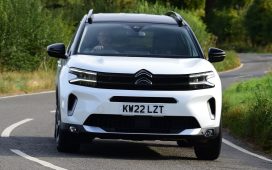How many electric vehicle owners suffer from buyer’s remorse? A lot more than you might think, according to a new survey from the consulting firm McKinsey & Co.
The survey found that nearly half of US EV owners plan to buy an internal combustion car next time. It’s a finding that could reinforce fears among carmakers that US consumers are cooling on EVs. But the survey also clashes with other research that suggests high levels of satisfaction with battery-powered cars.
McKinsey questioned nearly 37,000 drivers worldwide, including 4,100 in the US. These included a mix of EV owners as well as people who own internal-combustion engine or ICE vehicles. Of all the EV drivers surveyed, 29 percent said they were likely to switch back to an ICE vehicle with their next car purchase. About 46 percent of US survey respondents said they were likely to switch back to an ICE car.
The problem doesn’t seem to be the cars themselves. In the worldwide survey, only 13 percent complained about the experience of driving an EV. The big stumbling blocks are high cost and inconvenience.
For example, over one-third of all survey participants said a shortage of public charging stations was their biggest reason for regretting EV ownership. About the same number said the cost of EVs was too high and that it was too difficult to take long trips requiring lots of recharging stops. A quarter of EV owners griped that they had no way of recharging the cars at home.
Robert O’Koniewski, executive vice president of the Massachusetts State Automobile Dealers Association, said some local dealers have told him about customers who’ve come down with EV remorse. O’Koniewski said having a car that has to be slowly recharged rather than quickly refueled can induce culture shock in some owners.
The news isn’t all grim for EV makers. Of the survey respondents who still drive ICE cars, 38 percent said they would consider buying either an all-electric car or a plug-in hybrid as their next car.
In addtions, other surveys have found that consumers like EVs. a poll of 300 EV owners taken by CDK Global, maker of software for car dealerships. CDK found that 73 percent planned to purchase only electric cars in the future. Liz Najman, director of market insights at Recurrent, a research company that tracks the EV market, said that its survey of EV owners showed a similar high level of owner satisfaction.
Recurrent asked 250 drivers to rate their EV experience on a five-star scale. Seventy-eight percent gave their cars five stars while another 20 percent awarded four stars.
Still, Najman conceded that the McKinsey survey, based on a much larger customer sample, must be taken seriously. Karl Brauer, executive analyst for the online car shopping service ISeeCars.com, the McKinsey survey heralds a deepening skepticisms about EVs.
“Until relatively recently the perception of EVs and the reality of EVs were not aligned,” said Brauer. “The reality is, if you have a vehicle that takes half an hour on its best day and two hours on its worst day to refuel, that’s a major inconvenience.”
The McKinsey survey comes as EV demand in the US has tapered off. In the first quarter of 2024, sales of new EVs declined by 15.3 percent compared to the previous quarter, according to Cox Automotive. a company that provides software and services to car dealers. This represents the first quarter-over-quarter decline since 2020.
The slump is largely driven by a sharp fall in sales of Tesla,the most popular EV brand. The company has responded by slashing the prices on new Teslas, which in turn has led car dealers to cut prices on used Teslas to keep them cost competitive, Brauer said.
A surge of Tesla trade-ins this year has combined with car rental company Hertz’ decision to sell off 20,000 cars in its Tesla fleet has send used EV inventories soaring and prices plummeting.
Hiawatha Bray can be reached at hiawatha.bray@globe.com. Follow him @GlobeTechLab.










